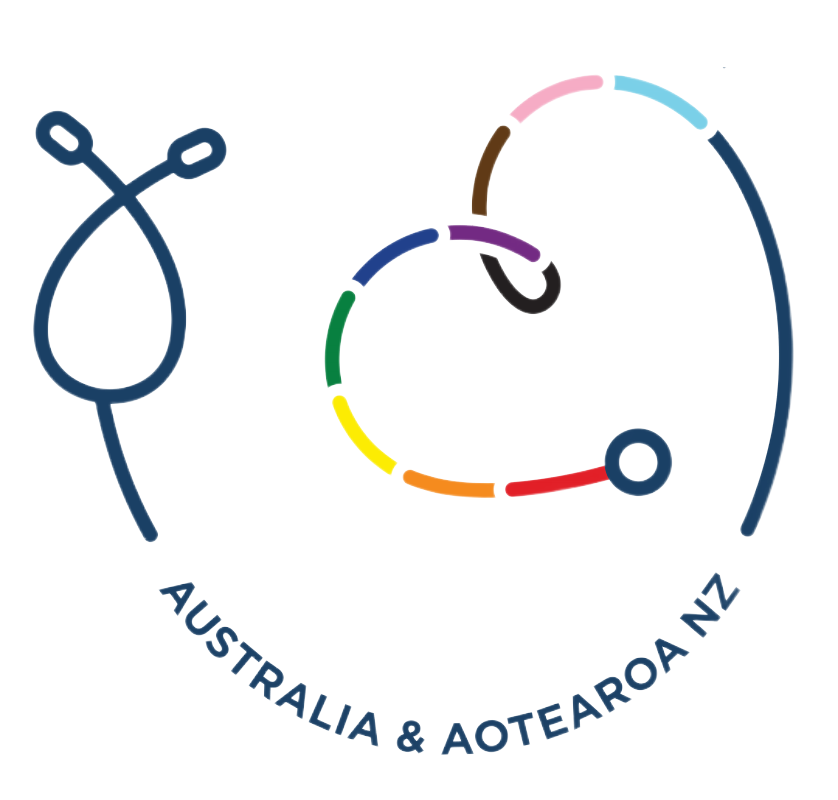Queer medical students in LGBTIQA+ healthcare research
Two of Pride in Medicine’s Executive Committee members and final-year medical students, Rosie Swanton (Communications Officer) and Steph Zwi (Medical Student Officer) recently completed tandem research projects exploring LGBTQIA+ inclusion in medical education. While their papers are yet to be published, you can find a brief description of the studies below, and keep an eye out for these budding academics.
Queer content in Australian medical specialty colleges
Rosie reviewed the curricula of all accredited Australian specialist medical training colleges for references to the LGBTQIA+ community and compared these to the AMA’s practitioner goals for LGBTQIA+ health. Her results showed that 16% of AMC accredited training programs have no reference to LGBTQIA+ groups in their curriculum. Of those that did mention the queer community, only 37% included specific competencies regarding safe cultural and clinical care. The research calls upon Australian colleges to evaluate their graduate outcomes, consult with the LGBTQIA+ community and set actions to meaningfully bring their curricula into line with the AMA goals. Without review of college curricula, the LGBTQIA+ community will continue to experience increased rates of discrimination, negative interactions with the healthcare system, delays in presentation to services and ongoing trauma.
Experience of LGBTQIA+ medical students
Steph conducted a scoping review exploring the global experiences of sexual and gender minority (SGM) medical students. Her research revealed that SGM medical students experience discrimination, harassment, burnout and mental illness at higher rates than heterosexual students. Drivers of this inequality include non-inclusive medical culture, lack of transparent reporting processes for experiences of discrimination and lack of queer representation within medical education. These issues were compounded for students belonging to additional minority groups including those from ethnic minority backgrounds and people with disabilities. The study produced a list of ten recommendations to help medical training institutions (including universities and hospitals) better support LGBTQIA+ medical students.
References:
Australian Medical Association (2021). AMA Position Statement on LGBTQIA+ Health. https://www.ama.com.au/articles/lgbtqia-health-2021


